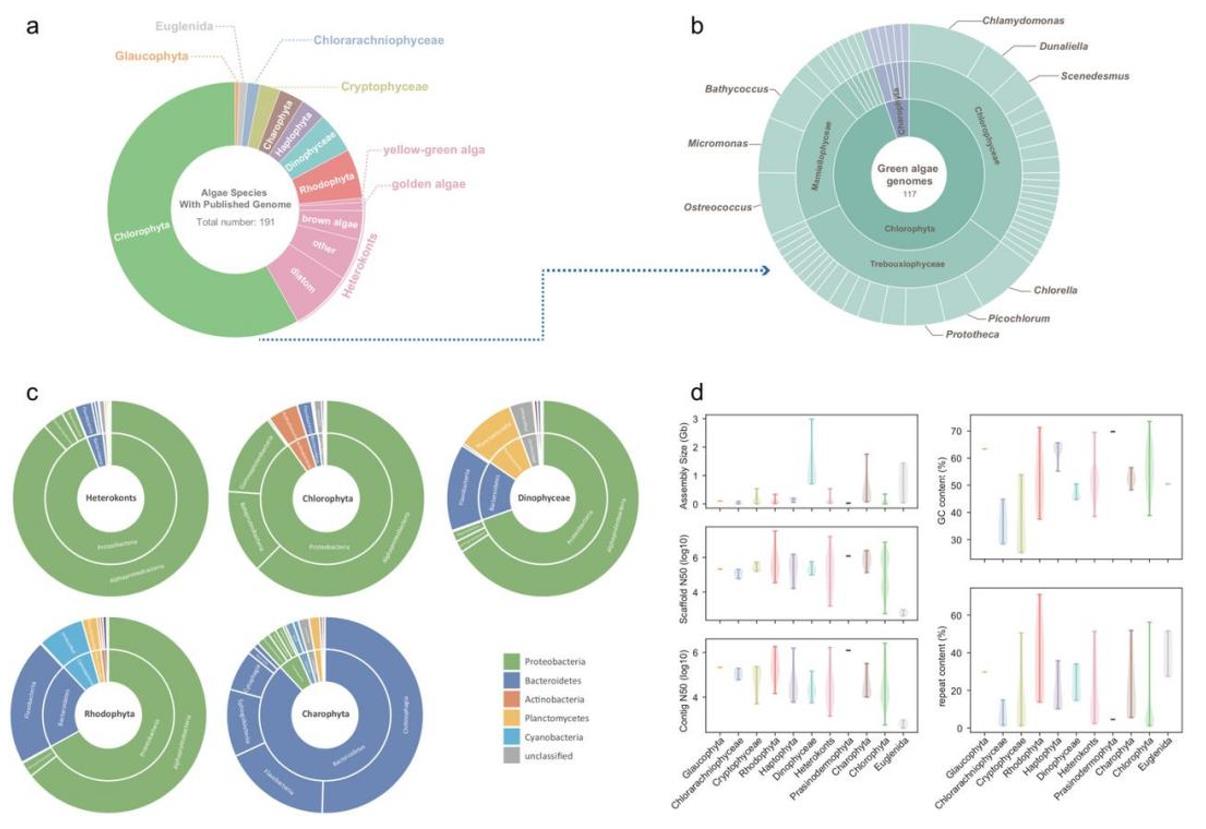Proficient photosynthetic microorganisms, including green microalgae, diatoms, and cyanobacteria, offer significant advantages over terrestrial plants as a rich source of various biomolecules that can be used in food, feed, and fuel applications. Due to their high diversity, taxonomic and morphological characteristics, algal algae are widely used to study plant origin and terrestrialization as well as multicellular evolution. Few algal genomes have been published for terrestrial plants due to the challenges of algal genome assembly caused by symbiosis with the microbiome. Until 2008, only three microalgal species, namely Chlamydomonas reinhardtii, Thalassiosira pseudonana, and Phaeodactylum tricornutum, had been sequenced. In the last decade, the revolution in next-generation sequencing technologies has led to a swift increase in the available number of drafts and completed genomes of algal species. Scientists have undertaken several sequencing projects to sequence the genomes of different microalgal species.
 Fig 1. Statistical data of sequenced algal genomes. (Shi C, et al., 2021)
Fig 1. Statistical data of sequenced algal genomes. (Shi C, et al., 2021)
The basis of microalgal genomics is determining whole genome sequences of different microalgal species. Our skilled scientists have been collecting all available microalgal genomic data and re-annotating protein-coding genes and repetitive sequences for years. At Lifeasible, we provide our clients with professional microalgal genome characterization services by searching multiple databases of algal genomes and using genomic methods.
Our scientists can sequence 191 microalgal species to obtain sequence information from rich datasets, and these genome sequencing projects will generate a tremendous genetic resource for microalgal species. Our featured microalgal genome sequencing includes:
In addition, we comprehensively collect and re-annotate available algal genomes to help you systematically analyze the following genomic features. Due to their diverse and unique morphology and taxonomy, the evolutionary trajectories of different microalgal groups have long been elusive. Based on their genome sequence features, we attempt to classify different microalgae and reconstruct their phylogenetic relationships.
We use advanced genomics tools and reliable computational methods to help you analyze the complete or near-complete genome sequences of a wide range of microalgae and systematically analyze genomic features. If you are interested in our solutions for the analysis of microalgal genomic features, please contact us directly.
Reference
Lifeasible has established a one-stop service platform for plants. In addition to obtaining customized solutions for plant genetic engineering, customers can also conduct follow-up analysis and research on plants through our analysis platform. The analytical services we provide include but are not limited to the following:
Get Latest Lifeasible News and Updates Directly to Your Inbox
Adaptive Evolutionary Mechanism of Plants
February 28, 2025
Unraveling Cotton Development: Insights from Multi-Omics Studies
February 27, 2025